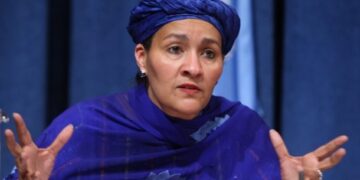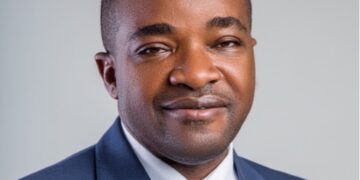Numerous concerned groups in Rivers State gathered in Port Harcourt, expressing solidarity with Governor Siminalayi Fubara amid the political crisis gripping the state. The groups, disapproving of the presidential resolution concerning the clash between Governor Fubara and the Minister of the Federal Capital Territory, Nyesom Wike, convened at the Government House along Azikiwe Street, Port Harcourt.
Armed with placards, representatives from various organizations, including the National Youth Council of Nigeria, Greater Wakirike Movement, National Union of Rivers State Students, and others, staged a rally that began as early as 7 am. They erected a stage, canopies, and passionately sang solidarity songs, making their stance clear on the ongoing tension in the state.
The diverse array of participating groups, such as the Ogoni Youth Federation, Niger Delta Activist Forum, Christian Association of Nigeria, Rivers State Chapter, and Concerned Lawyers, conveyed their disapproval with messages like “Rivers State cannot be an individual’s estate,” “Seats of defected lawmakers remain vacant,” and “Niger Delta youths should not be taken for granted.”
Addressing journalists on behalf of the protesters, lawyer David Uduru called on the people of Rivers State and the entire Niger Delta region to prepare for a series of non-violent protests, denouncing the purported resolutions reached during a meeting on December 18, 2023, at the Aso Rock Villa. He emphasized the need for a united rejection of any attempts to compromise the constitution, stressing that the governor should not succumb to any persuasive truce.
Uduru expressed skepticism about the authenticity of the resolutions, highlighting the absence of signatures from key officials such as the Secretary to the Government of the Federation, the Chief of Staff to the President, the Attorney General of the Federation, and the Chief Justice of the Federation. He announced the commencement of non-violent protest rallies in Rivers State from January 1, 2024, to oppose what they perceived as an infringement on the state’s autonomy. The groups pledged to stand firm in defending their collective interests and resisting external interference.























